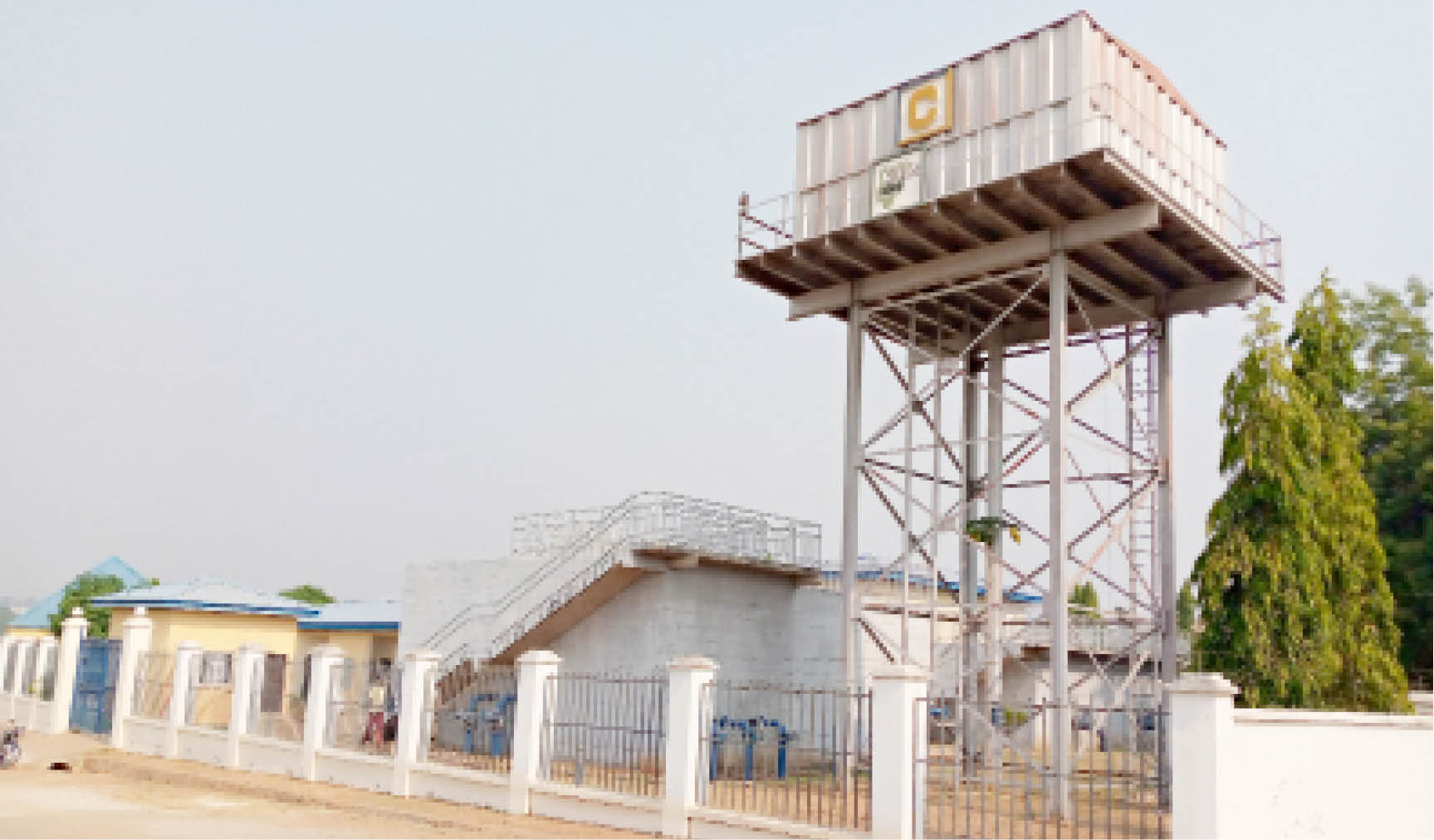About 10 years after the commencement of the Abaji multimillion naira water project, it was completed and commissioned for use in December 2020 by the Federal Capital Territory Administration (FCTA).
The project started in 2011 when Alhaji Musa Yahaya Muhammad was the Chairman of the Abaji Area Council. The project was awarded through the defunct office of the Millennium Development Goals at the cost of N800 million.
- 7 still missing as bandits ambush police officers in Kaduna
- Troops killed 2,403 terrorists, bandits, kidnappers in 9 months – Presidency
Daily Trust on Sunday learnt that the water project, which was constructed by China Geo-Engineering Corporation witnessed a slow pace due to the non-payment of counterpart funding of N400m by the authorities of the area council, and non-reticulation of water pipes to some of the benefiting villages.
The senior special assistant to the president on MDGs, which is now called Sustainable Development Goals (SDGs), Adejoke Orelope Adefulire, said the water project will serve over 100,000 residents including nine communities and the proposed Abuja University of Technology Abaji (AUTA). Among the beneficiaries are residents of Nuku, Kekeshi, Manderegi, Naharati, Abaji low-cost communities.

These residents had waited about ten years before accessing potable water. The delay, they said, led to untold hardship on them.
Nuku residents are worse hit by water scarcity. They get water from streams several kilometres from their homes. Some women said they leave their houses by 3am for a hill in search of water for domestic use while they sometimes buy water from a tanker. To get water from the tanker, they had to queue for hours.
Naharati residents fared no better as they trek, through a hilly road, to the river to fetch water while residents in Abaji town buy water from water vendors between N300 and N400 for their domestic use.
Some residents, especially women, said they wake up early to join a queue with basins on their heads to fetch water from some neighbours who have boreholes in their houses. There were occasions when they had to pay N20 per basin and N30 for a 10 litres jerrycan.
Some of the residents said seeing the then uncompleted project heightened their discomfort. Despite efforts of past council chairmen, the project remained uncompleted until December 1, 2020, when it was commissioned by the Minister of State for FCT, Hajiya Ramatu Tijjani Aliyu.
Daily Trust on Sunday gathered that the intervention of the office of the senior special assistant to the president on SDGs in the payment of counterpart fund, through the efforts of the minister of state for FCT Hajiya Ramatu Tijjani Aliyu and incumbent chairman of the council, Alhaji Abdulrahman Ajiya, as well as the Ona of Abaji, Alhaji Adamu Baba Yunusa, hastened the completion of the project.
- Reliefs women concerns for water
Some residents of the benefiting communities described the completion and commissioning of the project as a ‘big’ relief to them.
A resident of Nuku community, Mrs Rebecca Ayuba, said women now fetch water from a tap in the community.
“It’s unike before when I have to wake up as early as 2am with torchlight and trek far to dig out sand to get water,” she said.
She said she had always taken the risk just like other women in the community despite kidnappings in neighbouring villages.
“What is left for the government now is how to sustain it, which is very paramount,” she said.
She commended the authorities of the council under the leadership of the council chairman, Alhaji Abdulrahman Ajiya and the Ona of Abaji, Alhaji Adamu Baba Yunusa, for their efforts in ensuring that the project was completed.
Zainab Hulaira, who resides in Naharati community, also noted how she used to trek to the river and climb the hill back home with a basin of water on her head.
She said the completion of the water project has liberated the entire residents of Naharati, saying women now come with their basins every morning and evening to fetch water in the area. She also appealed to the government to intensify efforts in sustaining the project.
Mrs Christiana Jethro, a resident of Kekeshi community, recalled how she spent over N800 daily to buy water from vendors, saying the completion of the project has also brought some relief to her.
“Since the water project was commissioned, my children now fetch water every morning and sometimes in the evening from the tap in front of my house, which is now a big relief to us,” she said.
The chairman of the council, Alhaji Abdulrahman Ajiya, said the council through the support of the FCT Administration ensured that the water pipes are reticulated across all the benefiting communities, including the Abuja University of Technology Abaji (AUTA).
He said since the water project was completed and commissioned, residents of the benefiting communities as well as Abaji metropolis now enjoy uninterrupted water supply, even though he said there are some streets that are yet to be connected.
“We are making arrangements to extend pipes to some areas within the metropolis, especially Anguwar Sokodabo, Yelwa, Abaji low-cost and Sabon Tasha areas. I have met with the water board manager and arrangements are already in place,” he said.
The chairman said the council had already concluded arrangements with the FCT Administration on how the water project will be sustained, especially through a good maintenance culture.
The Ona of Abaji, Alhaji Adamu Baba Yunusa, had during the official commissioning of the water project in the area, appealed to the FCT Administration to see the need of shouldering the responsibility of sustaining the water project in the council.
“And I want to use this memorable occasion to appeal to the minister to see how it will shoulder the responsibility of maintaining this water project,” the monarch said.

 Join Daily Trust WhatsApp Community For Quick Access To News and Happenings Around You.
Join Daily Trust WhatsApp Community For Quick Access To News and Happenings Around You.


